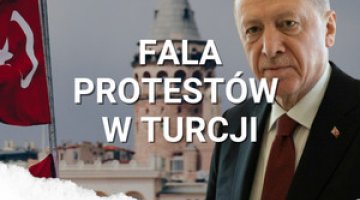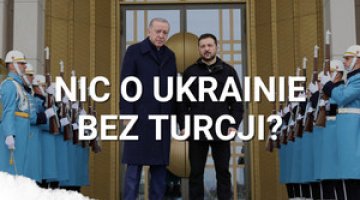Gülen’s death: the end of an era
On 20 October, Turkish Muslim scholar Fethullah Gülen died in Pennsylvania aged 83. He was an imam and the founder of an organisation which is commonly referred to as the Gülen Movement, whereas in Turkey it is known as the Fethullah Gülen Terrorist Organisation (FETÖ). Founded in the 1970s, it stems from traditional Sufi Muslim brotherhoods. Officially, it promoted the concept of merging Islam with liberal values, as well as democracy and interreligious dialogue. It gained ground in Turkish politics through an extensive network of educational institutions which served as a breeding ground for the Justice and Development Party (AKP) cadres in the first decade of its rule. The movement gained significant influence in the media, business and state institutions, including the law enforcement ministries. It was also very active abroad, as it ran schools in various locations around the world and formed an important element of Turkey’s soft power. 2013 saw a rift between the movement and the AKP, which culminated in a failed coup attempt in 2016. Ankara accused the Gülen Movement of carrying out this putsch. The wave of repression the authorities subsequently implemented was intended to completely eradicate the movement’s influence in the economy and public administration.
Gülen had resided in the US since 1999. His death has created an opportunity to alleviate the tensions between Turkey and the United States which repeatedly refused to extradite Gülen. In Turkey’s internal politics, his death marks the end of a period of punishing those involved in the attempted coup, which started when Gülen was designated as public enemy number one.
Commentary
- The movement, which is under constant pressure from Ankara and lacks a leader who could consolidate its ranks, may face internal divisions and fragmentation. Due to repression carried out in recent years, the organisation’s influence in domestic politics has significantly dwindled or perhaps has even been eliminated. By 2024, more than 700,000 FETÖ members and supporters had been prosecuted (125,000 have been sentenced so far), and as a result of personnel purges thousands have lost their jobs, in particular in the judiciary, the military, the police and education. However, many Turks continue to have links to the Gülen Movement, for example resulting from the fact that they attended its schools. Combined with the movement’s informal structure, this makes it difficult to estimate its impact on the Turkish state. Due to the repression, the organisation has relocated its activities abroad, where it still has (limited) capital and human resources. In response to the imam’s death, Turkey’s Foreign Minister Hakan Fidan has announced a further crackdown on the movement’s activity.
- Gülen’s death may result in an improvement in Turkish-American relations. For Ankara, its fight with the Gülen Movement had an international aspect. When the rift happened, Turkey began to persuade its partners to crack down on the FETÖ as a terrorist organisation and demanded that they curb its sources of funding and extradite its members. It also sought to take over the movement’s foreign assets. Moreover, it repeatedly insisted on the imam’s extradition from the US, to which Washington did not agree. This has led to a cooling of bilateral relations and Turkey openly accused the US of indirect involvement in the coup. As a result of Gülen’s death, the main issue of symbolic importance in the relations between the two countries has dropped off the agenda. Despite this, in the future Ankara may demand the extradition of other members of the movement, who have been accused of terrorism in Turkey, and the closure of institutions linked with it.




